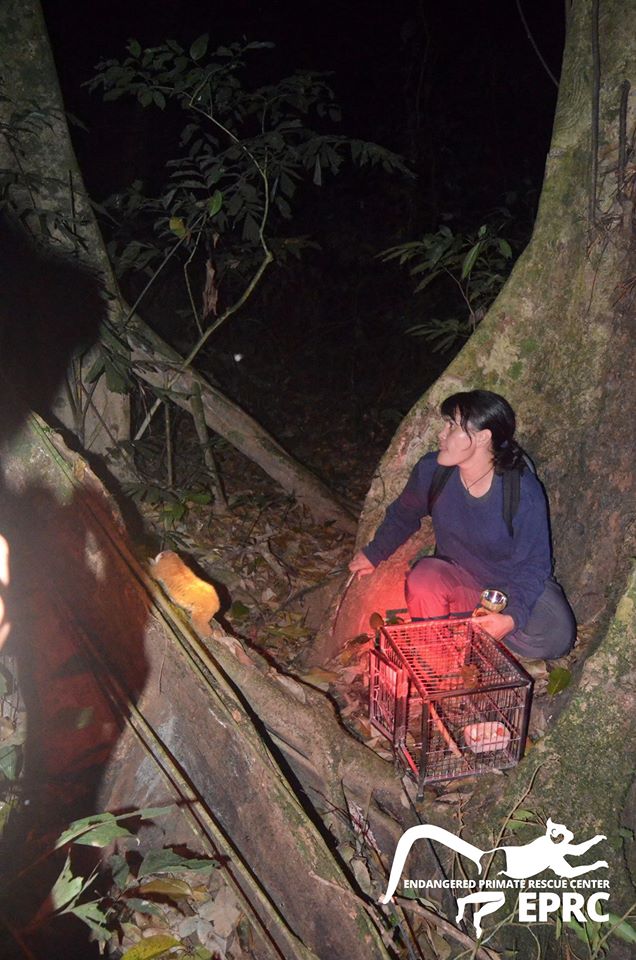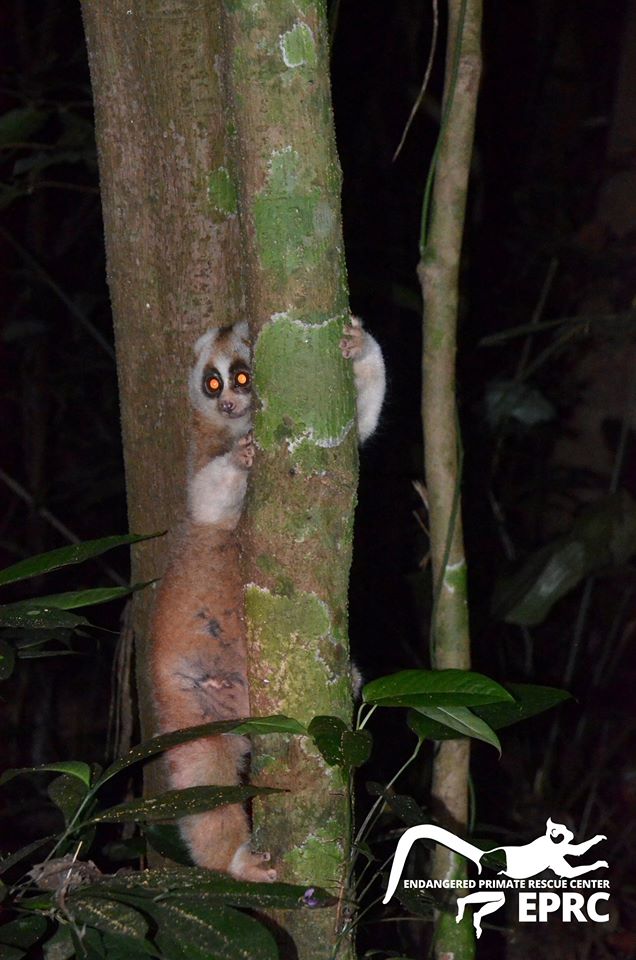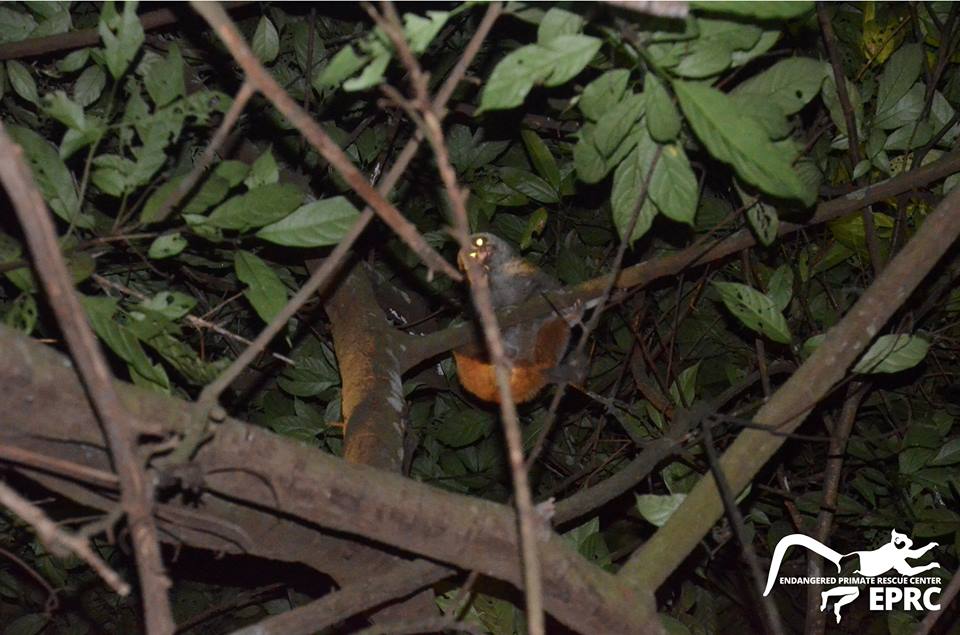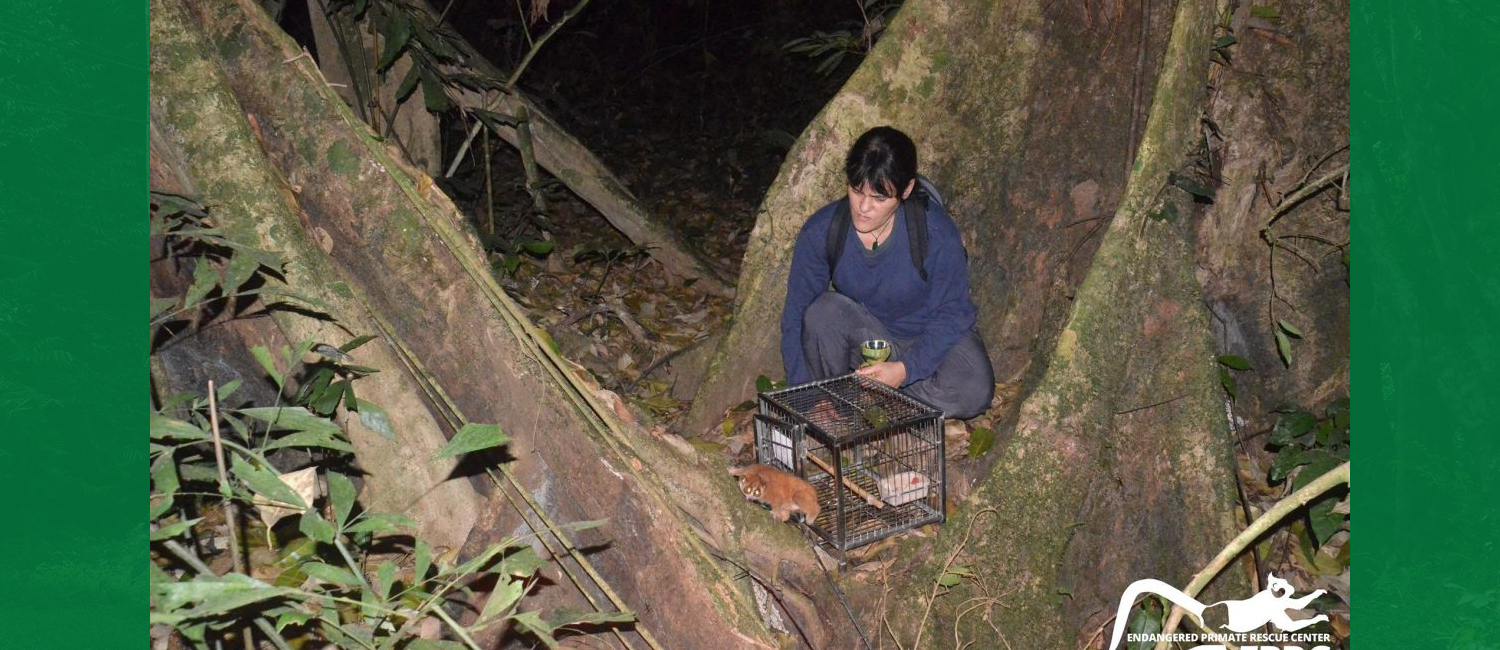Lorises Returned to the Forest in Cuc Phuong National Park
On 9/10, after a short period of rehabilitation in the EPRC’s facility, three slow lorises who passed the health and behaviour assessment for our loris release program finally returned to the forest in Cuc Phuong National Park.
This loris release, including two individuals who were transferred to the EPRC from a governmental rescue center for a better chance of release and one individual who was surrendered voluntarily to the EPRC from a local resident earlier this year, were carried out inside Cuc Phuong National Park, the forest where the EPRC is based.
Coming from illegal keeping not so long ago, these lorises were released to the wild in a strong and healthy condition thanks to the excellent care of EPRC’s keepers. But most importantly, they still possess wild behaviors that indicates a smooth readjustment to wild environment.

» The managing director of the EPRC, Sonya Prosser, personally directed the release of the captive lorises.
“The secret loris release site in Cuc Phuong National Park is where forest rangers regularly patrol which makes it a safe haven for our released animals”, said Sonya Prosser, EPRC’s Project Director, who can be seen opening the cage for the loris in the pictures below.
After being kept in illegal captivity and in the EPRC for months, our lorises seemed to not believe in the too-good-to-be-true reality in front of their eyes as we opened their cage and invited them to come out.
They investigated the new forest environment slowly by making one cautious little step at a time out of the cage, looked around one last time as if to say “so long” and then disappeared in the canopy.

» The released lorises were chosen for their fitness and wild behaviours, promising a swift adaptability to the wild.

» Primate drawing was highly expected since the beginning of the day. When they finally could get their dexterous hands on the crayons, they were not hesitant to show off their drawing skills

» They crept out of the cage slowly at first, but ran quickly up to the canopy once they gained confidence.
This happy ending for our three captive individuals is a result of a new loris release procedure that the EPRC’s working on that aims to minimize the amount of time rescued lorises stay in captivity, allowing them to return to the wild in a quick and safe manner. The EPRC wants to say thank you to Evan Webb and Caitlyn O’dea from Edith Cowan University, Australia, whose research during their intern at the EPRC in August concluded the release site for our loris release program.
The success of EPRC’s loris release program will regenerate the population of loris species in the wild, saving them from extinction. The EPRC will continue to assess the health and behaviour of our remaining captive lorises to carry out next releases in the future.



